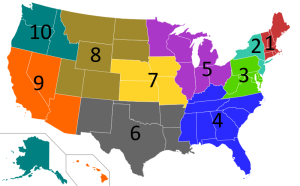By Hope Thomson, Project Director, UNC Environmental Finance Center
The UNC EFC was founded in the late 90s to support the financial sustainability of entities providing environmental services. Though the UNC EFC’s work has varied over the decades, direct technical assistance and advising to communities, specifically regarding water and wastewater utilities, has long been a core component of the Center’s focus. Housed in UNC-Chapel Hill’s School of Government, which also provides training opportunities and direct advising to North Carolina government units, the UNC EFC has provided technical assistance (TA) throughout North Carolina and the rest of the United States.
A History of Technical Assistance
Historically, technical assistance at the UNC EFC could take many shapes and forms but included two key components. First, TA was usually requested directly by a community. Second, the UNC EFC’s support was typically provided free of charge as part of an existing funder’s program. Sometimes, the funder placed restrictions on which utilities may receive TA. For example, the UNC EFC’s TA support was provided as part of US EPA grant programs designed to build capacity at small water systems (i.e., serving 10,000 or fewer individuals) or small wastewater systems (i.e., processing less than 1 million gallons per day). At other times, TA was tied to a specific topic area – for instance, the UNC EFC is currently engaged with several communities that operate independently but are considering regional service models.
Regardless of how the TA was funded, aiding the community contained consistent elements. The UNC EFC used a variety of data-based tools developed in-house to assess financial conditions and make recommendations to improve long-term financial sustainability. This may have consisted of running a Financial Health Check Up to see the trends of key performance indicators over the most recent five years. Often, the UNC EFC helped utilities to reassess their rate structures, especially if they hadn’t altered their rates in a long period of time or if they hadn’t differentiated between customer classes (e.g., residential, commercial, industrial) within their service area. The UNC EFC may have advised on regionalization efforts, the development of interlocal agreements, or best practices for affordability. Finally, the UNC EFC may have presented analyses to decision-making bodies to provide a more objective 3rd party perspective on financial challenges and potential solutions.
H20 Community Solutions Team Pilot Program
In 2022, the UNC EFC embarked on a pilot project funded by the US Environmental Protection Agency (EPA) called H2O Community Solutions Team (CST). This project focused on assessing and assisting struggling utilities with preparing to apply for State Revolving Fund (SRF) dollars to support infrastructure projects.
The UNC EFC team worked with the US Water Alliance (USWA) and the Water Resources Research Institute at Mississippi State University (MSU) to bring a multipronged approach to this new kind of TA. While the UNC EFC has extensive experience with utility financial management, MSU provided insight into technical problems, and the USWA brought a community engagement lens to the work. The TA provided through CST focused on identifying capital improvement projects that could be covered through an SRF loan application and financial strategies for covering debt payments and ensuring financial sustainability. However, the TA often went a step further – beyond utility staff and local elected officials. Through community listening sessions, the broader population was invited to share their experiences, concerns, and priorities for the water and wastewater services in their community. At the same time, the TA team and the utility could share with the customers the challenges existing in the infrastructure, the potential plan for SRF applications, and any additional expected changes. The goal of this extended dialogue between community members, staff, decision-makers, and subject matter experts, such as the TA team, was that it would not only generate SRF applications but also improve communication and understanding between the utility and its customers moving forward.
A “Water Infrastructure” EFC
Though the CST pilot has concluded, the UNC EFC continues to practice this “new” kind of TA. As an EPA Region 4 water infrastructure EFC, the UNC EFC will assist communities in accessing infrastructure dollars made available by the Bipartisan Infrastructure Law (BIL). A significant portion of BIL dollars is flowing through SRF programs. These programs can fund traditional infrastructure projects. With the additional BIL funds, they can also fund lead service line work and projects that address emerging contaminants, such as per- and polyfluoroalkyl substances (PFAS). The UNC EFC has additional resources to understand BIL and the implications for funding availability.
Another important provision of BIL is the requirement that a large percentage of funds be distributed to communities considered “disadvantaged”. The provision aims to ensure that BIL funding benefits communities that face exacerbated utility challenges due to consistent exclusion from funding sources, resources, and other promoting factors. This is consistent with the Justice40 initiative, in which the federal government targets at least 40% of federal investments to be received by “disadvantaged communities that are marginalized, underserved, and overburdened by pollution”. The UNC EFC is committed to assisting these communities specifically to expand their capacity to apply for, receive, and successfully manage SRF dollars to improve vital water and wastewater infrastructure.
The UNC EFC can assist communities with accessing SRF funds in Region 4 via analysis of financial preparedness for additional debt service, spatial analysis, assessment of potential for principal forgiveness, community engagement strategies, and other assistance as necessary.
The BIL-related work in Region 4 certainly relies on the tools and expertise that the UNC EFC has honed over time — but it differs in a few essential ways. Assistance via this program targets accessing SRF funds for water or wastewater system improvements. Secondly, the relationship between the community and the UNC EFC as their technical assistance provider is similar to that of CST – it is often much more involved than previous TA, with collaboration happening over longer periods of time and moving through various phases (i.e., time to meet with community members, assess infrastructure needs, determine funding capacity and prepare a funding application). Finally, through these technical assistance collaborations, the UNC EFC is exploring new mechanisms of assistance. Whether by creating a network of external resources or training staff on new skills, tools, and processes to better support communities seeking infrastructure improvements, the UNC EFC’s new foray into technical assistance is an opportunity to become a better partner to the communities the center serves.
In total, this technical assistance is a more holistic approach to community support. UNC EFC staff strive to meet communities where they are and work to connect them to resources they need to address water and wastewater infrastructure needs. This bespoke approach is unlike TA the UNC EFC has provided in the past and is centered around consideration of comprehensive community needs.
If your community has water, wastewater, or stormwater needs, is interested in applying for SRF funds, or just learning more about SRF funding options and is in EPA Region 4, the UNC EFC might be able to help. Please visit the link below for more information or to request technical assistance.
Image: Regions of the United States EPA, Image courtesy of Ninjatacoshell via Wikimedia cc 3.0
Need technical assistance? The UNC Environmental Finance Center is here to help!
The Environmental Finance Center at UNC-CH offers free one-on-one technical assistance for small water systems. If you have an interest in our support, fill out our Technical AssistanceRequest Form, or contact us at efc@sog.unc.edu.



